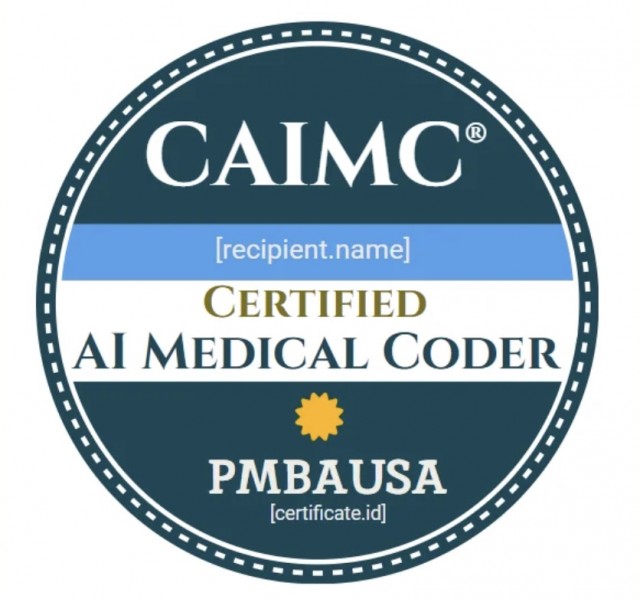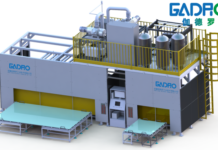AI Medical Coding combines Artificial Intelligence, NLP (Natural Language Processing), and Machine Learning to automate and assist the medical coding process.
(Isstories Editorial):- Hyderabad, Telangana Oct 18, 2025 (Issuewire.com) – Healthcare is evolving faster than ever. Artificial Intelligence (AI), Natural Language Processing (NLP), and Machine Learning (ML) are no longer buzzwords — they are the engines driving a massive digital transformation. From clinical documentation to diagnosis prediction, AI is revolutionizing the way healthcare data is processed, analyzed, and reimbursed.
More on Isstories:
- Sparket Leverages Landmark Patent to Launch Sparket.AI
- Working Parents Are Choosing Business Ownership Over Jobs That Won’t Give Them Parental Leave
- Chesshir Stone – Rock Supply Expands Presence in Plano Following Acquisition of Contractors Stone Supply
- Burj2Burj 2026 Confirms Its Place as Dubai’s Iconic Half-Marathon
- Valentine’s Day Style Guide: How to Choose the Right Wig from Isee Hair
At the center of this revolution lies medical coding, the process of translating complex medical records into standardized codes for billing, analytics, and compliance. Traditionally, coding was a manual, labor-intensive process — dependent on human accuracy, guideline interpretation, and documentation review. But in an era where hospitals generate billions of data points daily, manual coding alone cannot keep up with the scale, speed, and precision that modern healthcare demands.
That’s where AI-powered medical coding steps in — and it’s redefining the future of the profession.
AI Medical Coding combines Artificial Intelligence, NLP (Natural Language Processing), and Machine Learning to automate and assist the medical coding process. Instead of coders reading thousands of charts manually, AI algorithms can read, understand, and assign probable ICD-10-CM, CPT, or HCPCS codes based on the clinical documentation.
These systems don’t just look for keywords — they “understand” context using advanced NLP models. For example, if a note says “patient with Type 2 diabetes mellitus with chronic kidney disease stage 3, on insulin”, an AI model trained for medical coding can identify:
- E11.22 – Type 2 diabetes with diabetic CKD
- N18.32 – CKD stage 3b
- Z79.4 – Long-term insulin use
AI systems learn through supervised training, using millions of de-identified records and verified coder annotations. Over time, they improve accuracy, consistency, and speed — while coders shift from data entry to data validation and analysis.
Why AI Medical Coding Is the Future
- Speed and Efficiency:
AI systems can code thousands of charts in seconds, drastically reducing turnaround time for billing and revenue cycle management. Hospitals and coding vendors can close claims faster, minimize delays, and improve cash flow. - Error Reduction:
Manual coding errors — due to fatigue, oversight, or guideline misinterpretation — can cost organizations millions. AI-driven coding ensures standardized guideline adherence and consistent code application. - Data-Driven Insights:
AI tools don’t just assign codes; they analyze patterns across patient populations, enabling insights for predictive analytics, disease management, and payer trend analysis. - Scalability:
As patient volume grows, coding demand increases. AI allows scalability without proportionally increasing workforce costs. Coders become supervisors of intelligent systems rather than repetitive data processors. - Compliance and Audit Readiness:
AI models trained on updated ICD-10-CM and payer guidelines ensure compliance. Many platforms flag potential documentation deficiencies, reducing RADV and OIG audit risks. - Integration with EHR and CAC Systems:
Modern AI coding tools seamlessly integrate with Electronic Health Records (EHRs) and Computer-Assisted Coding (CAC) systems — making the workflow smoother, smarter, and more accurate.
In essence, AI is not replacing coders — it is empowering them. The coders who learn to work with AI tools will lead the next decade of healthcare transformation.
Introducing CAIMC® – Certified AI Medical Coder
Recognizing this industry shift, PMBAUSA LLC (Professional Medical Billers Association, USA) launched the CAIMC® – Certified AI Medical Coder credential, designed and delivered by Dr. Santosh Kumar Guptha, a world-record holder with over 42+ certifications and two decades of global coding experience.
CAIMC® is not just another certification — it’s a career revolution. It bridges traditional coding knowledge with AI, NLP, and automation technologies, preparing coders for the AI-driven future of medical coding.
What You’ll Learn in the CAIMC® Program
- AI Fundamentals in Healthcare: Understanding Artificial Intelligence, NLP, and Machine Learning models in clinical data interpretation.
- NLP in ICD-10-CM, CPT, and HCC Coding: How AI algorithms extract and assign codes from EHR narratives and discharge summaries.
- Prompt Engineering for Coders: How to communicate effectively with AI systems (like ChatGPT, Gemini, or AWS Comprehend Medical).
- AI-Powered Computer-Assisted Coding (CAC): Exploring how AI-based CAC systems function, their limitations, and audit validation methods.
- Ethical Coding & Data Privacy: HIPAA, PHI de-identification, and compliance in AI-assisted workflows.
- Audit and Quality Oversight in AI Coding: Learning to verify, validate, and fine-tune AI outputs with human judgment.
By completing CAIMC®, coders gain the dual advantage of technical literacy in AI and clinical precision in coding, making them highly valuable in the job market.
How CAIMC® Boosts Career Growth
- Future-Proof Certification: As AI becomes standard in every RCM and payer system, certified AI coders will be in top demand.
- Higher Earning Potential: AI-trained coders are already commanding 30-40% higher salaries globally.
- Global Opportunities: With the rise of remote and hybrid healthcare operations, AI coders are employable across the USA, India, UAE, UK, and Australia.
- Leadership Roles: Coders with AI understanding can advance into roles like AI Coding Trainer, CAC Analyst, or AI Medical Coding Auditor.
CAIMC® graduates not only understand how to code but also how to train, audit, and improve AI systems — a skill that will define the next decade of health information careers.
About Medesun Medical Coding Academy
Founded by Dr. Santosh Kumar Guptha, Medesun is recognized globally as one of the pioneering academies in AI-integrated medical coding and billing education. With over 20 years of excellence, Medesun has trained thousands of coders, billers, and auditors worldwide.
Awarded as the Best Medical Coding Academy in India by Outlook Business, Medesun is known for combining clinical expertise, technology-driven training, and global certification pathways. The academy collaborates with PMBAUSA LLC (USA) to deliver world-class programs such as:
- CAIMC® – Certified AI Medical Coder
- FIMC® – Fellowship in Medical Coding (Specializations: HCC, Surgery, Inpatient)
- CPMB® – Certified Professional Medical Biller
- FHIM® – Fellowship in Health Information Management
Medesun’s mission is clear — to empower healthcare professionals to master the intersection of medicine, coding, and AI.
Final Thoughts: From CPT to GPT – The Evolution Is Here
The future of medical coding will not be defined by how many codes you memorize, but by how well you can guide, train, and validate AI systems to ensure compliance, accuracy, and clinical integrity.
CAIMC® is more than a credential — it’s a mindset shift for the modern coder. In a world moving from Computer-Assisted Coding (CAC) to AI-Driven Coding (AIC), coders who adapt will lead the transformation.
“AI won’t replace coders. But coders who understand AI will replace those who don’t.” – Dr. Santosh Kumar Guptha
Medesun invites you to be part of this revolution. Learn AI, master medical coding, and step confidently into the future of healthcare.
Visit: www.pmbausa.com | www.medesunglobal.com
Enroll in CAIMC® – Certified AI Medical Coder today and future-proof your career.


Clinizen
[email protected]
09492021666
101, Delta Chambers, Ameerpet, above kakatiya mess parcel, Ameerpet, chennai shopping mall backside
https://www.medesunglobal.com
This article was originally published by IssueWire. Read the original article here.





















